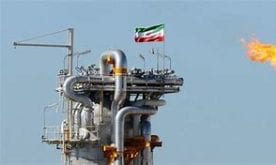Al-Arabia – The Cold War dynamic in the Middle East, which is now also playing out in other theatres internationally, is finally being accepted by many analysts in the region after being rejected for years. History has again become a living reality for the entire world.
Historically, Iran has sought to achieve its hegemony over the region by exporting its revolution, and has succeeded in four Arab capitals. Many observers during the so-called ‘Arab Spring’ had believed that Iran and its axis in Iraq, Syria, Lebanon, Yemen, and Qatar and within the Brotherhood in Egypt and its branches in the Arab Gulf and the world, Hamas in the Gaza Strip and extremist groups in Libya and in the triangle of south of Algeria, northern Mali and eastern Mauritania, Sudan, Somalia, Afghanistan and others can dominate the region and the Arab world.
Reversing the ‘Arab Spring’
All the previous observations, which deceived and confused some of the most renowned researchers and institutions, changed during the portentous ‘spring.’ A huge conflict between different opinions, ideas and analysis erupted as a result. Hence came several questions such as: How did Egypt strongly vote in support of President Abdel Fattah al-Sisi for a second term? How has Saif al-Islam Gaddafi been able to present himself as a real candidate for leadership of the new Libya? How has it become possible to conceive a new future for national states in Iran’s areas of influence — namely in Iraq, Lebanon and Yemen?
The evil axis in the region is now exposed and is drawing condemnation of the people who can see the great evil and harm it is capable of. This harm does not only affect the stability of countries but also targets people and aims to force them to yield to demographic changes by using the power of arms, terrorism and the savagery of extremism. Some tactics are tantamount to war crimes, such as using chemical weapons, committing genocide, carrying out forced displacement and other internationally condemned practices.
Events have today proven that the emergence of an Arab axis between Saudi Arabia and the United Arab Emirates is politically imperative. It is a historic event backed by the rationale of history, the commonality of interests and the power of alliances. The establishment of this Arab axis involved regional and international institutions, especially over the past three years. It’s enough to cite the successful visit of Prince Mohammed bin Salman to the United States, and the magnitude of the UAE’s presence in favor of all Saudi positions and policies in all regional and international platforms.
Countering Iran’s designs
While Iran and its axis drown in current crises in the Arab world, such as in Yemen and other countries, the UAE deliberates on the experience of Singapore and South Korea among others, and Saudi Arabia talks about a new ‘Europe’ in the Middle East after resolving these crises. There is a huge difference between countries seeking to expand and extend their influence under the slogan of ‘Waliyat-al-Faqih’ or the ‘Awaited Imam’, and others who direct their efforts for the future and stability, and build their cases in harmony with international conventions and institutions.
Those who follow the developments and study strategy must admit that the future is better and brighter, that careful planning can achieve the impossible and alter balances, and that firm and stable politics builds its cases patiently and enduringly thus gaining enough time to mature and become influential. From here, Saudi Arabia adopted two approaches in confronting the Yemeni issue; the first by way of supporting the national army and popular resistance through training, organization and armament and it is moving in an upward direction towards Sa’ada, Taiz and Sana’a. The second is to build an internationally strong court case against Iran which is smuggling ballistic missiles to Yemen. Saudi Arabia has proven that, as stated by the spokesperson of the Arab coalition, it reserves the right to retaliate against Iran in the right time and place. It is a new chapter in the conflicts of the region.
This article is also available in Arabic.
____________
Abdullah bin Bijad al-Otaibi is a Saudi writer and researcher. He is a member of the board of advisors at Al-Mesbar Studies and Research Center. He tweets under @abdullahbjad.
 Shabtabnews In this dark night, I have lost my way – Arise from a corner, oh you the star of guidance.
Shabtabnews In this dark night, I have lost my way – Arise from a corner, oh you the star of guidance.


